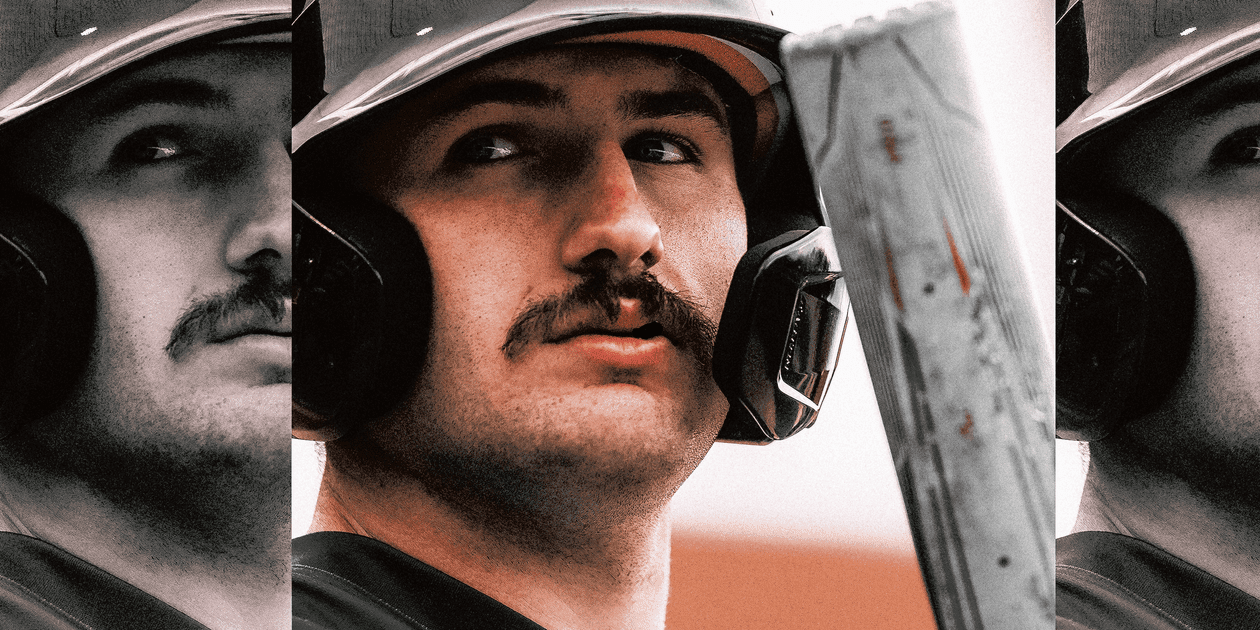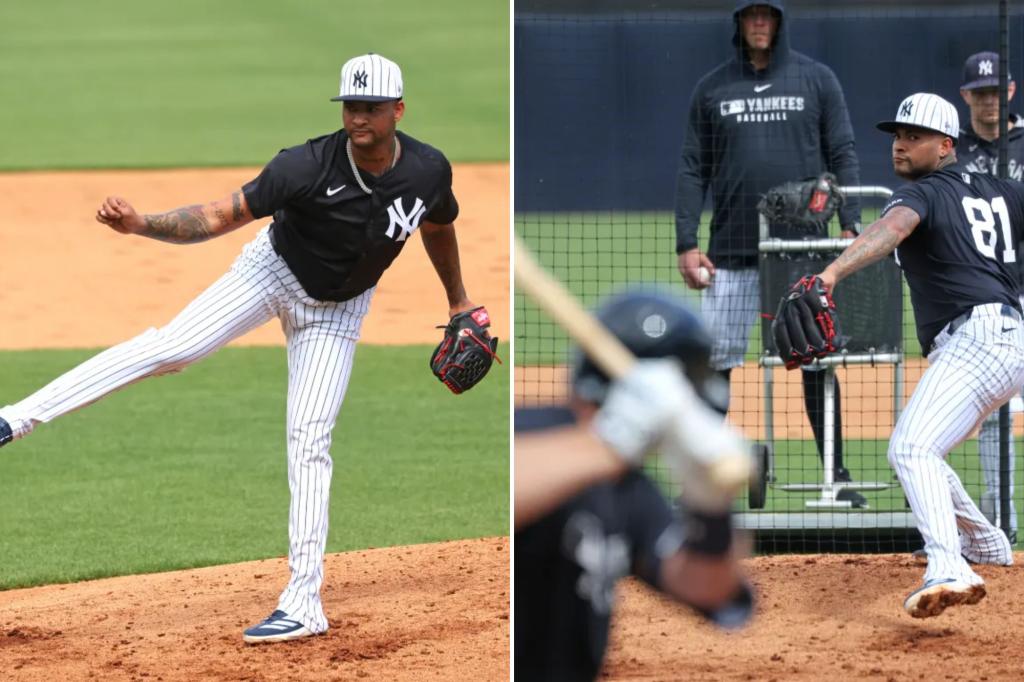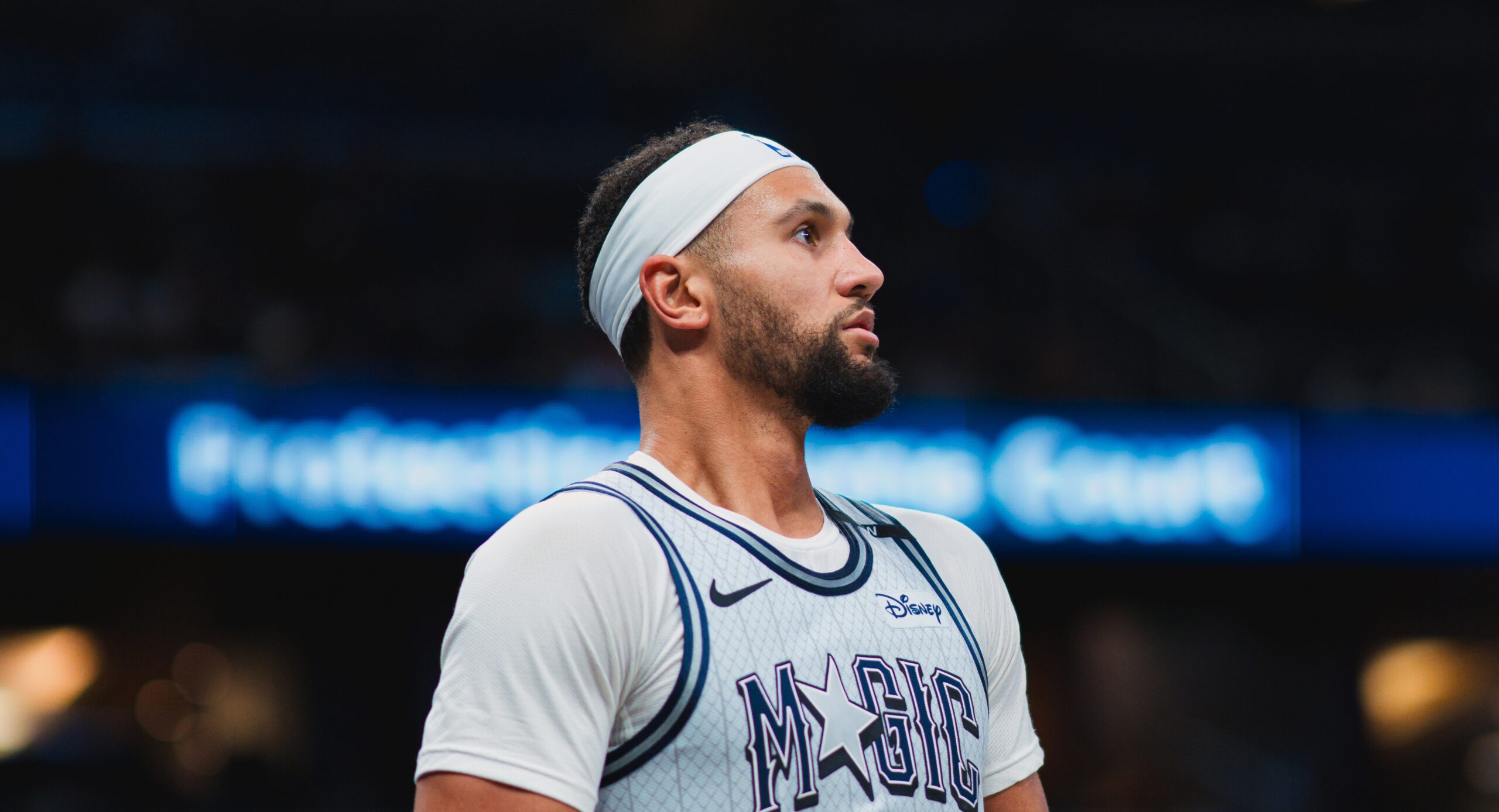
Derek Bender: A Minor League Catcher’s Battle with Accusations and Isolation
SCHENECTADY, N.Y. — Former Minnesota Twins minor league catcher Derek Bender occasionally reaches out to his old teammates via text or calls, leaving voicemails in hopes of reconnecting. Yet, since the events of September 6, those attempts have gone unanswered. He feels abandoned, like a ghost to a baseball team that appears to want nothing to do with him.
It’s been over five months since Bender stood accused of signaling pitches to opposing batters while playing with the Lakeland Flying Tigers, allegedly striving to sabotage his team’s playoff chances and end a draining season prematurely. Just a week later, he was let go, mere weeks after receiving a hefty signing bonus of $297,500 as a sixth-round draft choice.
Since then, Bender has found himself in a state of uncertainty—technically still a professional baseball player yet ostracized by his peers. He has tried reaching out to players from his draft class, friends, and former teammates, but all he’s received in return is silence.
“There are moments when I talk with people I thought were friends, and their attitude toward me has changed completely,” Bender lamented. “I’ve even heard my friends being questioned about why they still associate with me. That’s tough to hear.”
Importantly, Bender has not violated any laws; he is not facing criminal charges. However, he stands accused of betraying the trust of his teammates, undermining their efforts to win games, all in pursuit of an early end to a long season. While many players have faced allegations of cheating, Bender’s case stands out amidst the sea of similar stories.
Though he is eager to continue his baseball career and reclaim his life, the shadow of doubt now looms over him. He understands that moving forward, people—both in professional and personal environments—may always wonder: Can he be trusted?
When Bender’s story went public in September, he opted not to make a statement. It wasn’t until February that he agreed to discuss his situation during an interview with The Athletic in his Albany, N.Y. home.
Major League Baseball (MLB) has been conducting a thorough investigation into the allegations against him, specifically concerning a breach of Rule 21(a), which forbids players from intentionally losing games. The inquiry remains ongoing, and as a result, the Twins, Tigers, MLB officials, and even the players’ union have all refrained from commenting on the matter.
Sources acquainted with the investigation suggest it has yielded substantial evidence against Bender, with over a dozen individuals, including witnesses to the alleged misconduct, providing testimony. Notably, the game in question had no televised broadcast—a curious detail, given the other games in the series were aired. If the league determines that he indeed violated regulations, Bender could face a lifetime ban, although he may apply for reinstatement after a year.
During a lengthy interview, the critical question surfaced. Bender had spoken about his practices with Siena College’s baseball team, reflecting on the hours leading up to his last game with the Twins before it was finally time to confront the accusations head-on.
“Did you actually give away pitches?”
“No,” Bender replied with a hint of indignation. “I will carry this with me for the rest of my life. I never gave away pitches. I never aimed to give an edge to the opposing team.”
On September 6, Bender felt burnt out and wanted the Fort Myers Mighty Mussels’ season to end. He joked with his teammates before a doubleheader against Lakeland, implying it wouldn’t be the worst outcome if they let a grounder get past them. Although he hoped losses would eliminate them from playoff contention, he insists he was joking and not advocating for an actual game-throwing strategy. His real desire was to reset his game.
“Many of us were coming off rigorous college seasons,” Bender explained. “At that point, I was hitting .200 against some of the toughest pitching I’ve encountered. The pressure was immense, and the conversations among my teammates reflected that we were all ready for a break.”
Bender recognized that his behavior during the final week in Fort Myers exhibited some immaturity. He often clashed with development coaches over his performance and even attempted a prank involving a tarp slide during a rain delay—an act considered highly inappropriate.
"With Derek, you get a lot of emotion and personality," said Dan Sausville, a long-time hitting coach and family friend. "He’s a bold guy. Maybe I should’ve advised him to keep his opinions to himself in the minor leagues, but that advice didn’t stick."
Sausville acknowledged that Bender was in a troubled state during that week and had communicated with one of Bender’s agents about his need to return home.
After the doubleheader against Lakeland, Bender was called into his manager’s office. Lakeland’s manager informed Bender’s coaches that his players had heard him giving away pitches before they were thrown. Bender immediately refuted the claim but received no further support from teammates as the situation unfolded.
“The team had already lost six games in a row, and the starter wasn’t performing well,” he recalled. “I wasn’t allowed in the dugout for the next two games and watched the team from the bullpen. Initially, a few teammates supported me, but soon their backing faded.”
Once the season concluded, Bender made his exit with little acknowledgment from the team. “I just wanted to get out of there.”
The Twins were willing to retain him but under one condition: he needed to admit to the accusations and apologize. Bender attempted to take responsibility, but when pressed for specifics regarding what he was apologizing for, he felt unprepared.
As sources indicate, the Twins had already conducted an internal investigation led by their general manager, concluding that this incident reflected deeper issues and ultimately deciding to part ways with him.
“The only thing I had left was my integrity,” Bender said, explaining the ultimatum given to him. “They made it clear: ‘If you’re determined to shield yourself from accountability, then we will release you.’”
Bender’s past had painted him in a different light. A talented player, he spent just a single year playing high school baseball at St. James High in South Carolina and earned a spot in the school’s Hall of Fame.
“He set a standard in our program for hard work; he was unlike any player we had before,” remembered St. James Head Coach Robbie Centracchio.
Bender continued his baseball journey at Coastal Carolina University, a program known for producing MLB talent. In 2023, he shone with 19 home runs, gaining momentum heading into the MLB Draft, where the Twins recognized the power potential in his batting.
Now, he spends most days at home with his hood pulled up, wary of conversations that could turn hostile. He expresses guilt over social media posts that feature pictures of him in his Coastal Carolina uniform, and he has avoided returning to South Carolina, where the sport feels too deeply intertwined with his current struggles.
His parents are devastated. His father, Dennis, checks for updates from MLB on his son’s situation every day and has consulted with a lawyer about pursuing legal action. Meanwhile, his mother, Diane, is often overcome with emotion.
“It breaks my heart for my child,” she shared. “The thought that he might never play this sport again at a high level is devastating. It’s all he ever wanted.”
Instead of returning home, Bender has been crashing at a childhood friend’s apartment in Albany, opting for the company of friends who aren’t as entrenched in the world of baseball.
“I wanted to be around people who didn’t view me differently because of my situation,” he stated.
Though his rental space isn’t messy, it mirrors his mental state—confused, anxious, and overshadowed by recent events. He acknowledges feeling pressured even to sit for an interview, a decision his agency, Octagon, had previously advised against.
For months, he followed their guidance and refrained from commenting publicly until he decided to take the plunge. Now, he views the interview as a chance to regain control over his life and stand confidently in his truth.
“This is about reclaiming the narrative of my life,” Bender explained. “I’m not doing this desperate to return to major league play. This is about reclaiming my agency after being under a cloud of doubt for far too long.”
Octagon’s primary agent, Jake Rosner, expressed surprise at Bender’s decision to speak with the media, stating that they had preferred he minimize public appearances until the investigation concluded. Following the interview, Bender was dropped by his agency.
“Typically, we avoid commenting during ongoing investigations,” Rosner said, suggesting that Bender’s choice indicated a departure from their counsel.
Initially, Bender abstained from speaking to the press, not realizing the far-reaching implications of his case. It wasn’t until he received notifications about his situation that he began to grasp its full impact.
Within hours, news articles began circulating nationwide, along with an influx of messages on social media. He felt the need to go silent for a few days to avoid harassment from toxic commenters.
While the outrage has subsided with time, Bender’s struggle lingers fresh in his mind.
Now, without representation and a tarnished reputation, Bender awaits MLB’s final decision after taking part in an investigatory meeting where he meticulously analyzed the pitches inning by inning, hoping to demonstrate his innocence amidst the threat of a potential career-ending ban.
“I’ve always dedicated my life to baseball for good reason,” Bender reflected. “This entire ordeal made me lose my passion for the game. But I’ve come to realize how much I want to win and how much I want to contribute to a successful team. That’s all I wish for now.”
In his vehicle rests a Twins duffel bag packed with baseball gear—remnants of his once-promising career. His feelings toward the organization that offered him a chance are complex; he acknowledges their response to the allegations while simultaneously feeling unsupported.
“Part of me respects how the Twins handled everything,” he shared. “But there’s also a sense that they never truly had my back.”
For now, he recognizes that the Twins bag may potentially symbolize the last piece of professional gear he ever owns. He notes that the career trajectory for a sixth-round pick doesn’t offer much wiggle room, especially under these circumstances.
Ultimately, he accepts that baseball could move on seamlessly without him.
“That’s a realistic outcome,” he candidly stated.
The accusation against him may haunt his future career prospects. Bender dreams of becoming a sports psychologist for NHL players, hoping to eventually help others navigate pressure situations. Yet, at just 22 years old, he views his upcoming independent league opportunity with the Brockton Rox as a pivotal step toward redemption.
Though he will earn a mere $1,200 this summer, it’s more about demonstrating his commitment to the sport he loves.
“Brockton’s management is cautious, but nothing is guaranteed until I prove my worth on the field,” he acknowledged, aware that MLB’s investigation results could shape his role with the team.
“I see this as offering a young man a second chance to pursue his passion and do what he loves,” remarked Brockton GM Jerod Edmondson. “Everyone makes mistakes. He’s only 22.”
Bender plans to prove his abilities as a catcher, understanding that moving to first base may one day become necessary if apprehension surrounding him lingers.
“I want to show everyone I’m not just a player but also a caring friend,” he expressed. “I want to be someone teammates can count on.”
He aims to illustrate his transformation from a player who once griped about the demands of the game.
“You won’t hear complaints from me anymore,” he stated firmly. “I’ve worked too hard for this, and I refuse to let a single accusation erase my aspirations.”
Bender may not feel obligated to defend his integrity, but he understands that judgments will persist, regardless of any declarations he makes. The question remains—Can he be trusted?
“People will form their own opinions regardless,” he concluded candidly. “Let’s be honest, no one will readily admit to wrongdoing. Most will deny any accusations. Ultimately, people will judge me, whether I say anything or not.”
Dan Hayes of The Athletic contributed to this report.










